- Home
- Peter F. Hamilton
The Mandel Files
The Mandel Files Read online
The Mandel Files
Peter F Hamilton
An omnibus of novels
Mindstar Rising 1992
A veteran of Gulf War II, telepath Greg Mandel enters the high-tech world of computer crime, zero-gravity smuggling, and artificial intelligence when an elusive saboteur threatens a powerful organization and the very future of humankind.
***
A Quantum Murder 1994
Peter F. Hamilton returns to the future of "Mindstar Rising" with an engrossing new adventure of Greg Mandel, a freelance operative whose telepathic abilities give him a crucial edge in the high-tech world of the 21st century. Mandel must investigate the murder of professor Edward Kitchener, a double Nobel laureate who had been researching quantum cosmology for the powerful Event Horizon conglomerate.
***
The Nano Flower 1995
At first no one noticed when the flower was delivered to Julia Evans, owner of Event Horizon, but this flower has genes millions of years in advance of terrestrial DNA. Where did the plant come from? Greg Mandel, telepathic investigator, must find out-before the Nano Flower blooms.
Peter F Hamilton
The Mandel Files
***
Mindstar Rising
The Greg Mandel Trilogy Book 1
CHAPTER 1
Meteorites fell through the night sky like a gentle sleet of icefire, their sharp scintillations slashing ebony overload streaks across the image Greg Mandel’s photon amp was feeding into his optic nerves.
He was hanging below a Westland ghost wing, five hundred metres above the Purser’s Hills, due west of Kettering. Spiralling down. Wind strummed the membrane, producing near subliminal bass harmonics.
Ground zero was a small crofter’s cottage; walls of badly laid raw stone swamped with some olive-green creeper, big scarlet flowers. It had a thatched roof, reeds rotting and congealing, caked in tidemark ripples of blue-green fungal growths. A two-metre-square solar-cell strip had been pinned on top.
Greg landed a hundred metres downslope from the cottage, propeller spinning furiously to kill his forward speed. He stopped inside three metres. The Westland was one of the best military microlights ever built-lightweight, highly manoeuvrable, silent, with a low radar-visibility profile. Greg had flown them on fifteen missions in Turkey, and their reliability had been one hundred per cent. All British Army covert tactical squads had been equipped with them. He’d hate to use anything else. They’d gone out of production when the People’s Socialism Party came to power, twelve years previously. A victim of the demilitarization realignment programme, the Credit Crash, the Warming, nationalization, industrial collapse. This one was fifteen years old, and still functioned like a dream.
A time display flashed in the bottom right corner of the photon amp image, spectral yellow digits: 21:17:08. Greg twisted the Westland’s retraction catch, and the translucent wing folded with a graceful rustle. He anchored it with a skewer harpoon. There’d be no danger of it blowing away now. The hills suffered frequent twister-gusts, and this was March, England’s rainy season: squalls abounded. Gabriel hadn’t cautioned him about the wing in her briefing: but Greg always followed routine, engrained by sergeant majors, and way too much experience.
He studied the terrain, the amp image grey and blue, smoky. There were no surprises; the Earth-resource satellite pictures Royan had pirated for him were three months old, but nothing had changed. The area was isolated, grazing land, marginally viable. Nobody spent money on barns and roads up here. It was perfect for someone who wanted to drop out of sight, a nonentity wasteland.
Greg heard a bell tinkling from the direction of the cottage, high-pitched and faint. He keyed the amp to infrared, and upped the magnification. A big rosy blob resolved into a goat with a broad collar dangling a bell below its neck.
He began to walk towards the cottage. The meteorites had gone, sweeping away to the east. Not proper shooting stars after all, then. Some space station’s waste dump; or an old rocket stage, dragged down from its previously stable discard-orbit by Earth’s hot expanded atmosphere.
“At twenty-one nineteen GMT the dog will start its run towards you,” Gabriel had said when she briefed him. “You will see it first when it comes around the end of the wall on the left of the cottage.”
Greg looked at the wall; the ablative decay which ruled the rest of the croft had encroached here as well, reducing it to a low moss-covered ridge ringing a small muddy yard.
A yellow blink: 21:19:00.
The dog was a Rottweiler, heavily modified for police riot-assault duty, which was expensive. A crofter with a herd of twenty-five llamas couldn’t afford one, and certainly had no right owning one. Its front teeth had been replaced by mono-lattice silicon fangs, eight centimetres long; the jaw had been reprofiled to a blunt hammerhead to accommodate them; both eyes were implants, retinas beefed up for night sight. One aspect Gabriel hadn’t mentioned was the speed of the bloody thing.
Greg brought his Walther eight-shot up, the sighting laser like a rigid lightning bolt in the photon amp’s image. He got off two fast shots, maser pulses that drilled the Rottweiler’s brain. The steely legs collapsed, sending it tumbling, momentum skidding it across the nettle-clumped. In death it snarled at him, jaws open, eyes wide, crying blood.
He walked past, uncaring. The Walther’s condensers whined away on the threshold of audibility, recharging.
“At twenty-one twenty and thirteen seconds GMT, the cottage door will open. Edwards will look both ways before coming out. He will be carrying a pump-action shot-gun-only three cartridges, though.”
Greg flattened himself against the cottage wall, feeling the leathery creeper leaves compress against his back. The scarlet flowers had a scent similar to honeysuckle, strong sugar.
21:20:13.
The weather-bleached wooden door creaked.
Greg’s espersense perceived Edwards hovering indecisively on the step, his mind a weak ruby glow, thought currents flowing slowly, concern and suspicion rising.
“He’ll turn right, away from you.”
Edwards boot squelched in the mud of the yard, two steps. The shot-gun was held out in front, his finger pressed lightly on the trigger.
Greg came away from the wall, flicking the Walther to longburn, lining it up. Edwards was a bulky figure dressed in filthy denim trousers and a laddered chunky-knit sweater; neck craning forwards, peering through the moonlit gloom. He’d aimed the shot-gun at the ramshackle stone shed at the bottom of the yard.
The goat bleated, tugging at its leash.
Edwards was somehow aware of the presence behind him. His back stiffened, mind betraying a hot burst of alarm and fear to Greg’s espersense. He tightened his grip on the shotgun, ready to spin round and blast away wildly.
“Drop it,” Greg said softly.
Edwards sighed, his shoulders relaxing. He bent to put the shot-gun down, resting its barrel on a stone, saving it from the mud. A man who knew weapons.
“OK, you can turn now.”
His face was thin, bearded, hazel eyes yellowed. He looked at Greg, taking in the matt-black combat leathers, slim metallic-silver band bisecting his face, unwavering Walther. Edwards knew he was going to die, but the terrified acceptance was flecked with puzzlement. “Why?” he asked.
“Absolution.”
He didn’t get it, they never did. His death was a duty, ordered by guilt.
Greg had learnt all about duty from the Army, relying on his squad mates, their equal dependence on him, It was a bond closer than family, overriding everything-laws, conventions, morals. Civvies like Edwards never understood. When all other human values had gone, shattered by violence, there was still duty. The implicit trust of life. And Greg had failed Royan. Miserabl
y.
Greg fired. Edwards’ mouth gaped as the maser beam struck his temple, his eyes rolling up as he fell forwards. He splashed into the thin layer of mud. Dead before he hit.
Greg holstered the Walther, breath hissing out between clenched teeth. He walked back down the hill to the Westland without giving the body another glance. Behind him, the goat’s bell began to clang.
He refused to think about the kill while the Westland cruised over the countryside, his mind an extension of the guido, iced silicon, confirming landmarks, telling his body when to shift balance. It would’ve been too easy to brood in the ghost wing’s isolated segment of the universe, guilt and depression inevitable.
Rutland Water was in front of him, a Y-shaped reservoir six and a half kilometres long nestling in the snug dark valleys of the county’s turbulent rolling landscape. A pale oyster flame of jejune moonlight shone across the surface. Greg came in over the broad grass-slope dam at the western end. He kept low, skimming the water. Straight ahead was the floating village; thirty-odd log rafts, each supporting a plain wooden cabin, like something out of a Western frontier settlement. They were lashed together by a spiderweb of cables, forming a loose circle around the old limnological tower, a thick concrete shaft built before the reservoir was filled.
He angled towards the biggest cabin, compensating for the light gusts with automatic skill. At five metres out he flared the wing sharply. Surging air plucked at his combat leathers; his feet touched the coarse overlapping planks which made up the roof, legs running, carrying him up towards the apex as the propeller blurred. He stopped with a metre to spare. The tart, scrumpy-like odour of drying water-fruit permeated the air, reassuring in its familiarity.
The Westland’s membrane folded.
“Greg?”
He watched Nicole’s bald head rise above the gable end. “Here.” He shrugged out of the harness.
She came up the ladder on to the roof, a black ex-Navy marine-adept dressed in a functional mauve diving bikini. He couldn’t remember her ever wearing anything else. Even in the moonlight her water-resilient skin glistened from head to toe; she looked tubby, but not overweight, her shape dictated by an all-over insulating layer of subcutaneous fat, protecting her from the cold of deep water.
“How did it go?”
“All sorted, no messing,” he replied curtly.
Nicole nodded.
Two more marine-adepts swarmed briskly up the ladder and took charge of the Westland. Greg appreciated that, no fuss, no chatter. Most of the floating village’s marine-adepts were ex-Navy, they understood.
They’d colonized the reservoir around the time Greg moved into his chalet on the shore, seeding and harvesting their gene-tailored water-fruit. Their only concession to the convulsions of the PSP years was to store Greg’s military gear for him, and, very occasionally, provide sanctuary for an activist on the run from the People’s Constables.
“I’ll be back tomorrow,” Greg told Nicole as he climbed into his ancient rowing boat. When the neurohormone hangover had gone, when the memory of Edwards had faded, when he felt human again.
She untied the pannier and tossed it into the boat after him. “Sure, Greg. Take care.”
Back on land he headed for the pub to forget the kill, The Army had taught him how to handle that as well. How to suspend human feelings in combat, to refuse the blame for all the deaths, the pain, suffering, horror. Greg had never woken screaming like others in the regiment had.
He knew what he needed, the release which came from drink and women, gluttoning out, sluicing away the memory of Edwards in a wash of basement-level normality.
He had a good feeling as he walked into the Wheatsheaf at Edith Weston; esper intuition or old-fashioned instinct, it didn’t matter which, the result was the same. Static-charged anticipation. He opened the taproom door grinning.
The Wheatsheaf’s landlord, Angus, had come up trumps; his new barmaid was a tall, strapping lass, twenty years old with a heart-shaped face, wearing her thick red hair combed back from her forehead. She was dressed in a long navy-blue skirt and purple cap-sleeve T-shirt. A deep scoop neck showed off the heavily freckled slope of her large breasts to perfection.
Eleanor Broady. Greg stored the name as she pulled him a pint of Ruddles County, topping it with a shot of Angus’s home-made whisky. It lasted longer that way, he couldn’t afford to knock back pints all night.
Greg sat back and admired her in the guttering light of the oil lamps. The Wheatsheaf was a run of the mill rural pub, which reverted true to the nineteen-hundreds ideal with the demise of the big brewery conglomerates. Flash trash fittings melting away surprisingly fast once mains electricity ended and beer had to be hand-drawn from kegs again. Either relaxing or monumentally dull according to individual sensibilities. Greg liked it. There were no demands on him in the Wheatsheaf.
He was wedged in between a group of local farm workers and some of the lads from the timber mill, billeted in the village’s old RAF base. The resident pair of warden dodgers were doing their nightly round, hawking a clutch of dripping rainbow trout they’d lifted from the reservoir.
Eleanor was a prize draw for male attention. Slightly timid from first-night nerves, but coping with the banter well enough.
Greg weighed up her personality, figuring how to make his play. Confidence gave him a warm buzz. He was seventeen years older, but with the edge his espersense gave him that shouldn’t be a problem. What amused her, topics to steer clear of, he could see them a mile off. She’d believe they were soul twins before the night was out.
Her father came in at eleven thirty. The conversation chopped off dead. He was in dungarees, a big stained crucifix stitched crudely on the front. People stared; kibbutzniks didn’t come into pubs, not ever.
Eleanor paled behind the bar, but stood her ground. Her father walked over to her, ignoring everybody, flickering yellow light catching the planes of his gaunt, angular face.
“You’ll come home with me,” he said quietly, determined. “We’ll make no fuss.”
Eleanor shook her head, mute.
“Now.”
Angus came up beside her. “The lady doesn’t want to go.” His voice was weary but calm. No pub argument was beyond Angus; he knew them all, how to deal with each. Disposal expert.
“You belong with us,” said her father. “You share our bread. We taught you better.”
“Listen-” Angus began, sweet reason.
“No. She comes with me. Or perhaps you will recompense us for her schooling? Grade four in animal husbandry, she is. Did she not tell you? Can you afford that?”
“I worked for it,” Eleanor said. “Every day I worked for it. Never ending.”
Greg sensed how near to tears she was. Part of him was fascinated with the scene, it was surreal, or maybe Shakespearian, Victorian. Logic and lust urged him up.
Angus saw him closing on the bar and winced.
Greg gave him a wan reassuring smile-no violence, promise.
His imagination pictured his gland, a slippery black lens of muscle nestled at the centre of his brain, flexing rhythmically, squirting out milky liquid. Actually, it was nothing like that, but the psychosis was mild enough, harmless. Some Mindstar Brigade veterans had much weirder hallucinations.
The neurohormones started to percolate through his synapses, altering and enhancing their natural functions. His perception of the taproom began to alter, the physical abandoning him, leaving only people. They were their thoughts, tightly woven streamers of ideas, memories, emotions, interacting, fusing and budding. Coldly beautiful.
“Go home,” he told Eleanor’s father.
The man was a furnace of anger and righteousness. Indignation blooming at the non-believer’s impudence. “This is not your concern,” he told Greg.
“Nor is she yours, not any more,” Greg replied. “No longer your little girl. She makes her own choices now.”
“God’s girl!”
It would’ve been so easy to thump the arroga
nt bastard. A deluge of mayhem strobed through Greg’s mind, the whole unarmed combat manual on some crazy mnemonic recall, immensely tempting. He concentrated hard on the intransigent mind before him, domination really wasn’t his suit, too difficult and painful.
“Go home.” He pushed the order, clenching his jaw at the effort.
The man’s thoughts shrank from his meddling insistence, cohesion broken. Faith-suppressed reactions, the animal urge to lash out, fists pounding, feet kicking, boiled dangerously close to the surface.
Greg thrust them back into the subconscious, knowing his nails would be biting into his palms at the exertion.
The father flung a last imploring glance to a daughter who was genuinely loved in a remote, filtered manner. Rejection triggered the final humiliation, and he fled, his soul keening, eternal hatred sworn. Greg sensed his own face reflected in the agitated thoughts, distorted to demonic preconceptions. Then he was gone.
The taproom slowly rematerialized. The gland’s neurohormones were punishing his brain. He steadied himself on the bar.
There were knowing grins which he fended off with a sheepish smile. Forced. A low grumble of conversation returned, cut with snickers. An entire generation’s legend born, this night would live for ever.
Eleanor was trembling in reaction, Angus’s arm around her shoulder, strictly paternal. She insisted she was all right, wanted to carry on, please.
Greg was shown her wide sunny smile for the first time, an endearing combination of gratitude and shyness. He didn’t have to buy another drink all night.
“Kibbutzes always seemed a bit of a contradiction in terms to me,” Greg said. “Christian Marxists. A religious philosophy of dignified individuality, twinned with state oppression. Not your obvious partnership.” He and Eleanor were walking down the dirt track to his chalet in Berrybut Spinney, a couple of kilometres along the shore from Edith Weston. The old timeshare estate’s nightly bonfire glimmered through the black trees ahead, shooting firefly sparks high into the cloudless night. A midnight zephyr was rucking the surface of Rutland Water, wavelets lapping on the mud shallows. He could hear the smothered-waterfall sound from the discharge pipes as the reservoir was filled by the pumping stations on the Welland and Nene, siphoning off the March floodwater. The water level had been low this Christmas, parched farmland placing a massive demand for irrigation. Thousands of square metres of grass and weeds around the shore that’d grown up behind the water’s summer retreat were slowly drowning under its return. As the rotting vegetation fermented it gave off a gas which smelt of rancid eggs and cow shit. It lasted for six weeks each year.

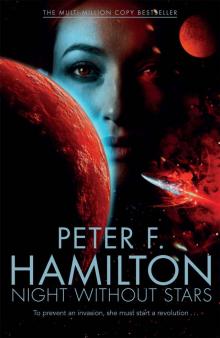 A Night Without Stars
A Night Without Stars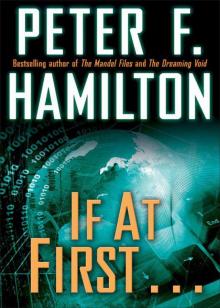 If at First . . .
If at First . . .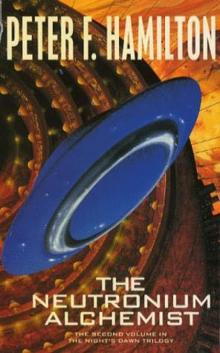 The Neutronium Alchemist
The Neutronium Alchemist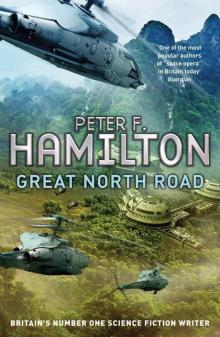 Great North Road
Great North Road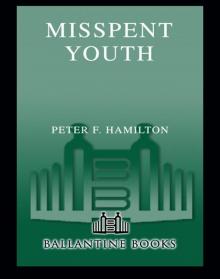 Misspent Youth
Misspent Youth Pandora's Star
Pandora's Star The Evolutionary Void
The Evolutionary Void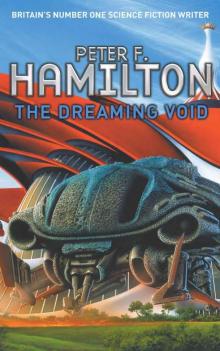 The Dreaming Void
The Dreaming Void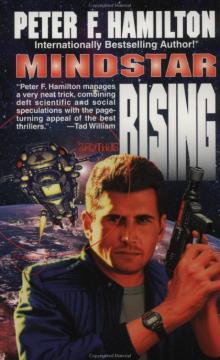 Mindstar Rising
Mindstar Rising The Temporal Void
The Temporal Void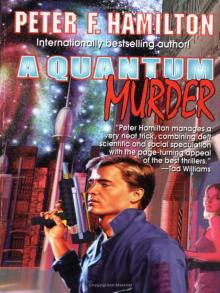 A Quantum Murder
A Quantum Murder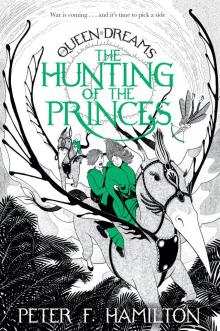 The Hunting of the Princes
The Hunting of the Princes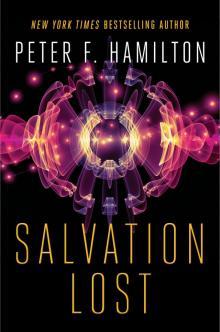 Salvation Lost
Salvation Lost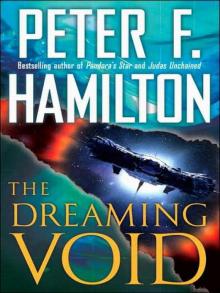 The Dreaming
The Dreaming Salvation
Salvation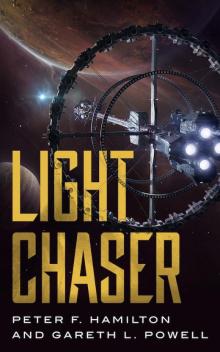 Light Chaser
Light Chaser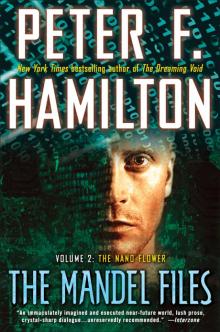 The Mandel Files, Volume 2: The Nano Flower
The Mandel Files, Volume 2: The Nano Flower![The Saints of Salvation [British Ed.] Read online](http://i1.bookreadfree.com/22/the_saints_of_salvation_british_ed__preview.jpg) The Saints of Salvation [British Ed.]
The Saints of Salvation [British Ed.]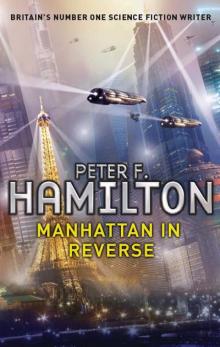 Manhattan in Reverse
Manhattan in Reverse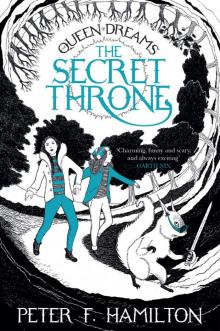 The Secret Throne
The Secret Throne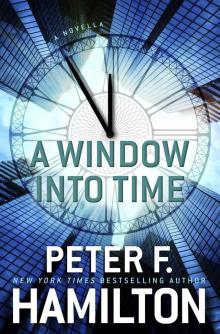 A Window Into Time
A Window Into Time A Second Chance at Eden
A Second Chance at Eden The Nano Flower
The Nano Flower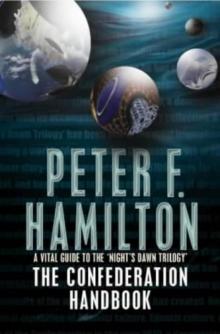 The Confederation Handbook
The Confederation Handbook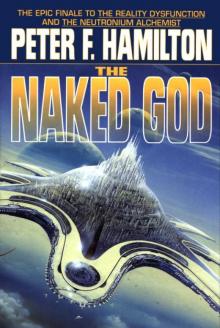 The Naked God
The Naked God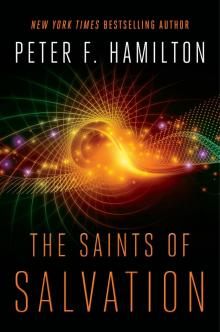 The Saints of Salvation
The Saints of Salvation The Void Trilogy 3-Book Bundle
The Void Trilogy 3-Book Bundle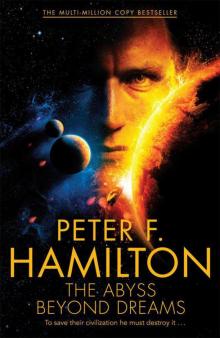 The Abyss Beyond Dreams
The Abyss Beyond Dreams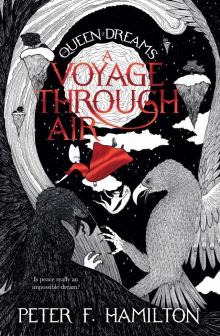 A Voyage Through Air
A Voyage Through Air Judas Unchained
Judas Unchained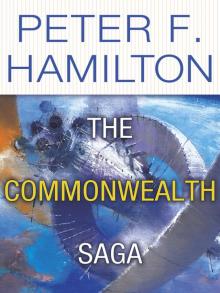 The Commonwealth Saga 2-Book Bundle
The Commonwealth Saga 2-Book Bundle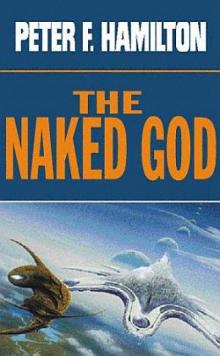 The Naked God - Flight nd-5
The Naked God - Flight nd-5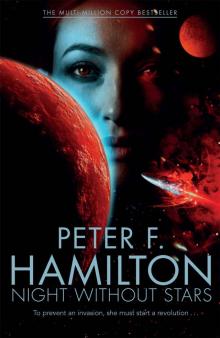 Night Without Stars (Chronicle of the Fallers Book 2)
Night Without Stars (Chronicle of the Fallers Book 2)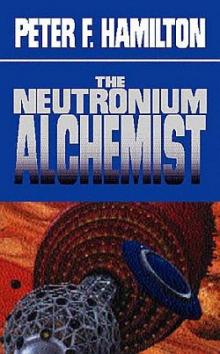 Neutronium Alchemist - Conflict nd-4
Neutronium Alchemist - Conflict nd-4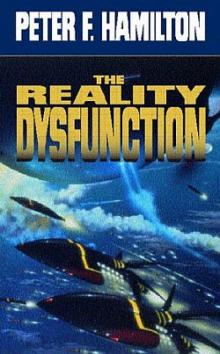 Reality Dysfunction - Expansion nd-2
Reality Dysfunction - Expansion nd-2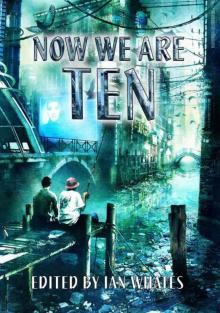 Now We Are Ten: Celebrating the First Ten Years of NewCon Press
Now We Are Ten: Celebrating the First Ten Years of NewCon Press Neutronium Alchemist - Consolidation nd-3
Neutronium Alchemist - Consolidation nd-3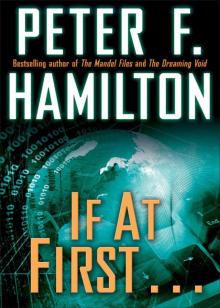 If at First . . . (Short Story)
If at First . . . (Short Story)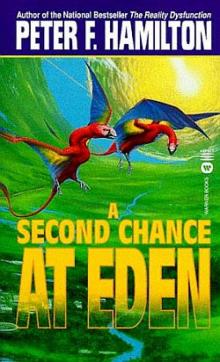 A Second Chance at Eden nd-7
A Second Chance at Eden nd-7 Judas Unchained cs-2
Judas Unchained cs-2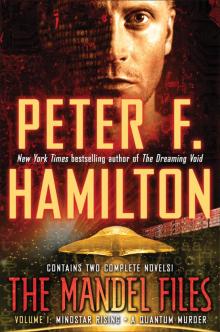 The Mandel Files, Volume 1
The Mandel Files, Volume 1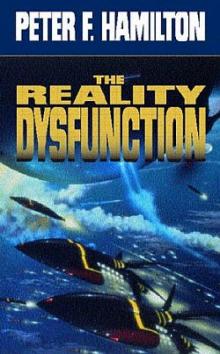 Reality Dysfunction — Emergence nd-1
Reality Dysfunction — Emergence nd-1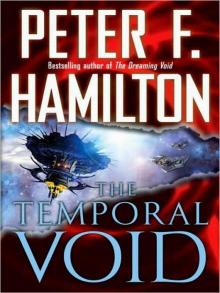 The Temporal Void (ARC)
The Temporal Void (ARC)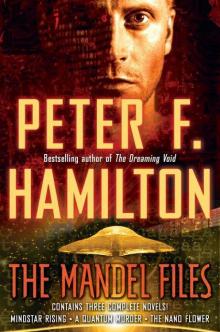 The Mandel Files
The Mandel Files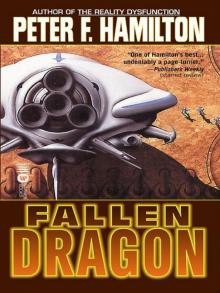 Fallen Fragon
Fallen Fragon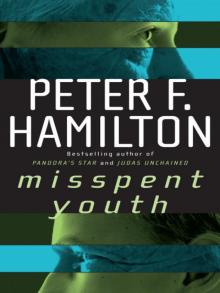 Misspent Youth (commonwealth saga)
Misspent Youth (commonwealth saga)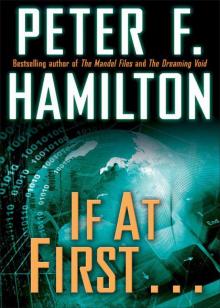 If at First...
If at First...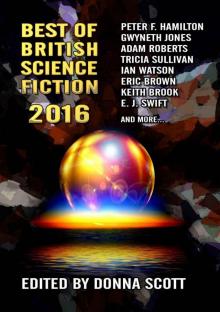 Best of British Science Fiction 2016
Best of British Science Fiction 2016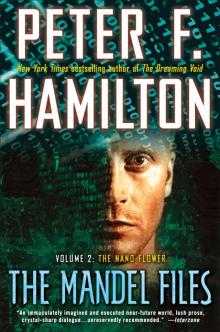 The Mandel Files, Volume 2
The Mandel Files, Volume 2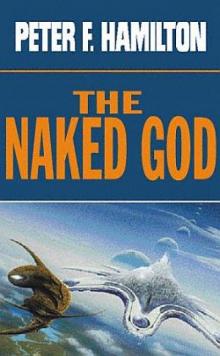 The Naked God - Faith nd-6
The Naked God - Faith nd-6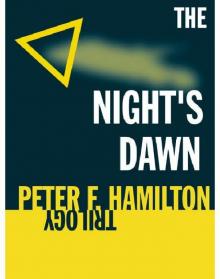 The Night's Dawn Trilogy
The Night's Dawn Trilogy Pandora's Star cs-2
Pandora's Star cs-2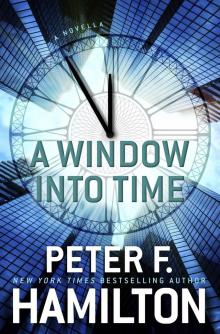 A Window into Time (Novella)
A Window into Time (Novella)